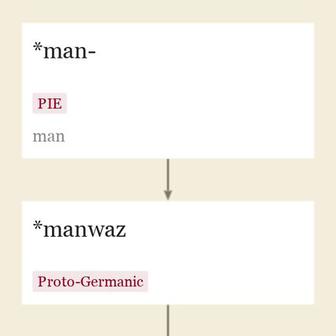letter-man n.
of college athletes, 1913, from letter (n.1) in the sports sense + man (n.).
Entries linking to letter-man
c. 1200, "
According to Watkins, perhaps via Etruscan from Greek diphthera "
Latin littera also meant "
The custom of giving the school letter as an achievement award in sports, attested by 1908, is said to have originated with University of Chicago football coach Amos Alonzo Stagg. Earlier in reference to colleges it meant "

"
Sometimes connected to root *men- (1) "
Specific sense of "
Man also was in Old English as an indefinite pronoun, "
As "
Man-about-town "
So I am as he that seythe, 'Come hyddr John, my man.' [1473]
MANTRAP, a woman's commodity. [Grose, "Dictionary of the Vulgar Tongue," London, 1785]
At the kinges court, my brother, Ech man for himself. [Chaucer, "Knight's Tale," c. 1386]
updated on October 10, 2017